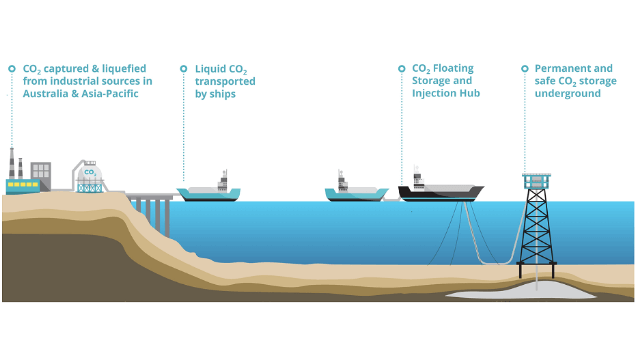MOL Backs Floating Carbon Storage Project off Australia

MOL has decided to back an ambitious project to install a floating offshore carbon storage station of the coast of Australia.
Japanese startup deepC Store wants to build a floating storage and injection hub off the northern or western coast of Australia, where there are multiple industrial operations that might benefit from carbon capture projects. Like Norway's Northern Lights project, the "CStore1" hub would be able to receive liquefied CO2 from multiple producers by seaborne delivery. The carbon would be offloaded onto a floating receiving unit for storage before injection, much like the operations of an FPSO in reverse.
The CO2 would ultimately be injected in a subsurface geological formation near the hub. Planned CO2 injection capacity is between 1.5 and 7.5 million tonnes per year, making it approximately the same size as the Northern Lights project.
The Australian government has provided an initial tranche of about $3.5 million in seed funding for CStore1, which will go towards pre-FEED engineering studies and an evaluation of the best potential sites for injection. Australia’s Commonwealth Scientific and Industrial Research Organisation (CSIRO) has identified many depleted offshore oilfields and aquifers with potential for commercial-scale CCS projects.
In a newly-announced LOI, deepC has reached a deal with MOL and Technip Energies (T.EN) for pre-FEED, FEED, EPCI and O&M services related to the project's planning and construction. Technip will design, build and install the plant, while MOL will advise on shipping considerations.
"The LOI with MOL and T.EN ensures technical confidence to develop CStore1 as the first offshore floating CCS hub project in Asia Pacific region," said Jack Sato, Chairman of deepC Store.
In a similar venture, the startup Carbon Collectors is working with mooring specialists Imodco (SBM Offshore) to design a weathervaning carbon receiving terminal for use in the North Sea.
